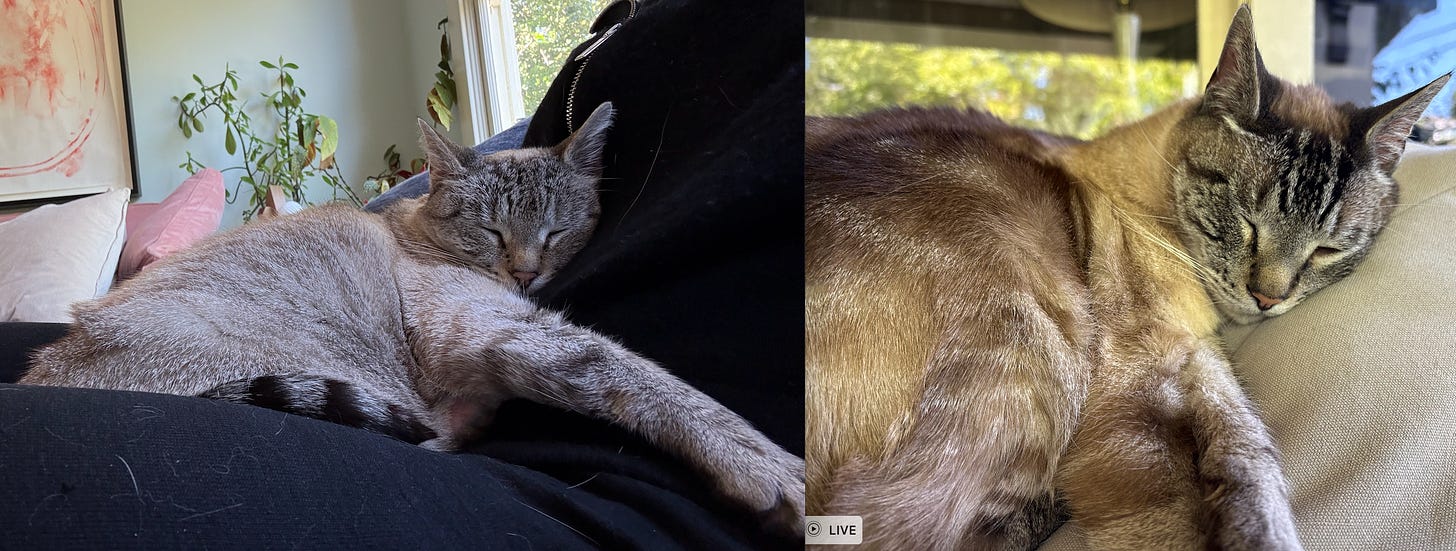Greetings, writers—
It seemed like everywhere I turned this past week, there was Mason Currey’s post on French writer Françoise Sagan’s defense of laziness:
“It’s very difficult to be very lazy,” Sagan (Bonjour Tristesse, etc.) noted. “It takes a lot of imagination to do nothing and you have to be sufficiently self-confident not to have a bad conscience. You have to have a taste for life, so that every minute is complete in itself and so you don’t have to keep saying ‘I’ve done this or that.’ You need strong nerves to do nothing. Being lazy also means that other people’s opinions don’t matter. Nor does the idea of always having to prove yourself.”
I do not have Sagan’s strong nerves, and I do not do nothing, but I’ve thought of myself as lazy for as long as I can remember. I had a moment of revelation a few years ago, so sudden it was like a blow to the head, that perhaps I’d been wrong for decades, and that I was not in fact lazy at all, and I enjoyed this belief for a few months before going right back to considering myself an idler. Whether I’m correct about this is neither here nor there. Plenty of writers claim laziness, so I’m in fine company. Here are a few of them:
When asked if writing was easy for him, novelist Robert Stone said, “It’s goddamn hard. Nobody really cares whether you do it or not. You have to make yourself do it. I’m very lazy and I suffer as a result.”
Before she was a published writer, Grace Paley said, “I was hanging out a lot. I was kind of lazy. I had my kids when I was about twenty-six, twenty-seven. I took them to the park in the afternoons. Thank God I was lazy enough to spend all that time in Washington Square Park. I say lazy but of course it was kind of exhausting running after two babies. Still, looking back I see the pleasure of it…. If I hadn’t spent that time in the playground, I wouldn’t have written a lot of those stories.” Paley’s so-called laziness is also why she published “only” three story collections and three chapbooks of poetry in seventy years. (Only in quotes because Paley can say in a story what might take a lesser writer a whole novel to get out.)
“I have occasionally kept diaries for short periods, but I’m very lazy,” Aldous Huxley noted. “One should keep notebooks, I think, but I haven’t.”1
“I think of myself as a very lazy writer, though other people see it differently,” said Samuel R. Delaney. “Gide says somewhere that art and crime both require leisure time to flourish. I spend a lot of time thinking, if not daydreaming. People think of me as a genre writer, and a genre writer is supposed to be prolific. Since that’s how people perceive me, they have to say I’m prolific. But I don’t find that either complimentary or accurate.”
“Laziness may well be part and parcel of what it means to be human,” says Michael Greaney in The Restless Compendium: Interdisciplinary Investigations of Rest and Its Opposites. But while “[o]nce upon a time, the work ethic taught us that human beings cannot afford to be lazy,… if we are going to avoid being defined as creatures of the attention economy, then we can’t afford not to be lazy. In fact, we’re probably going to have to roll up our sleeves and work at it.”
Prompts:
What is your relationship to laziness, whether in terms of writing or life?
Write a scene of sloth.
Happy writing (or taking a nap)—
Emily
For all you pantsers (I’m one too), Huxley said this: “I work away a chapter at a time, finding my way as I go. I know very dimly when I start what’s going to happen. I just have a very general idea, and then the thing develops as I write. Sometimes—it’s happened to me more than once—I will write a great deal, then find it just doesn’t work, and have to throw the whole thing away. I like to have a chapter finished before I begin on the next one. But I’m never entirely certain what’s going to happen in the next chapter until I’ve worked it out. Things come to me in driblets, and when the driblets come I have to work hard to make them into something coherent.”






I love, love, love down time when I can flit between reading, napping, knitting, watching something, and maybe more napping. Long plane rides are good for that. Thanks for the piece.
I don't consider idle time laziness, rather, for me it's a time for reverie, contemplation, freedom from the external world of chaos, a time to listen to the leaves rustling, a time of mystery and wonder. I believe the idea of "lazy" is a form of self harm coming from a punitive culture where being "busy" is somehow preferred to being otherwise.